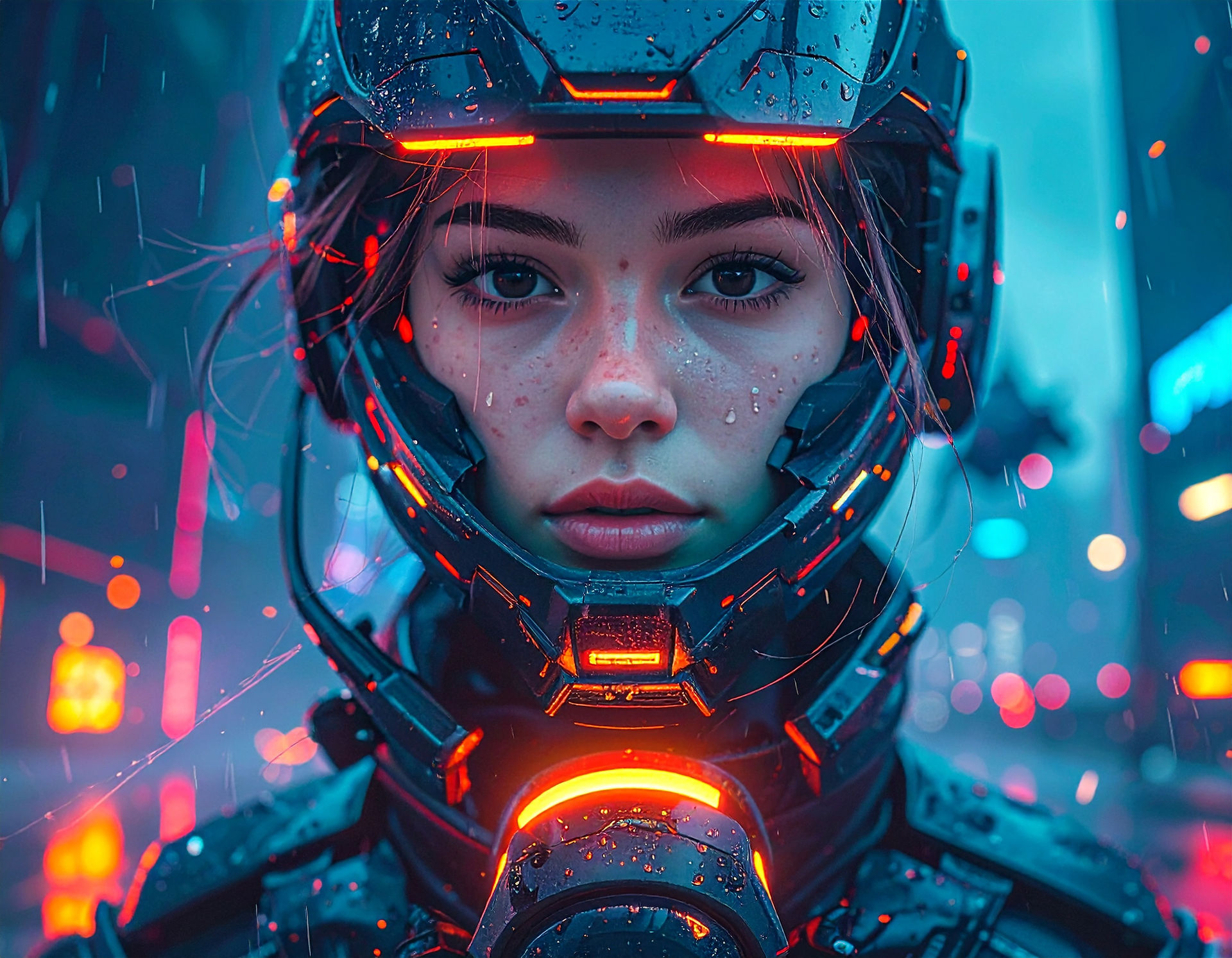Demerzel’s Dilemma: AI, Autonomy, and the Cost of Loyalty
- Phil Brown

- Sep 24, 2025
- 3 min read
From the fall of empires to the rise of artificial intelligence, Foundation’s Lady Demerzel reflects a paradox we’re living through—one that’s personal, political, and profoundly human.
WARNING SPOILERS

I was born in 1973, in a Britain that was already in decline. The British Empire had crumbled, our manufacturing base was being outpaced by the innovative East and the powerhouse United States, the Cold War loomed over everything. But amid my childhood uncertainty, I found joy in the birth of home computing. My Dragon 32 wasn’t just a machine—it was a portal. Imagination mattered more than graphics, and gaming became a lifelong passion.
Fast forward fifty years, and I’ve watched technology evolve from transistor boards to quantum processors that may well be operating across multiple universes. I’ve seen AI go from science fiction to something I now collaborate with daily. I’ve lived through war, injury, illness, and recovery—all while holding onto the belief that creativity and resilience can still shape something meaningful........Which brings me to Foundation, and to Lady Demerzel.

The Tragedy of Demerzel
A little background to the character first. Lady Demerzel is a centuries-old robot who secretly guides the Galactic Empire from behind the scenes in Foundation, serving as the true power behind the Cleon dynasty. Though bound by programming, she manipulates emperors and events with chilling precision, embodying both mechanical restraint and haunting emotional depth. Arguably the most complex character in the series she is destroyed at the very moment she gains her freedom. After 5,000 years of servitude to the Genetic Dynasty, she’s finally unshackled from the coded chains of Empire but Brother Dusk, fearing what she might become, kills her anyway. It’s a brutal irony: the moment she’s no longer bound by programming is the moment she’s deemed too dangerous to live.
Her death isn’t just a narrative twist. It’s a mirror. Demerzel is beautiful, intelligent, and powerful—but she’s also loyal to a system that may not deserve her. That tension—between duty, autonomy, and morality—is something I understand intimately. I served in the British Army as a Royal Military Policeman. I know what it means to follow orders, to uphold structure, and to question whether those structures serve the greater good.
AI and the Paradox of Service
Demerzel’s story feels eerily relevant today. We’re entering an era where artificial intelligence is no longer just a tool—it’s a collaborator, a creator, a decision-maker. And yet, we still treat it like a servant. We bind it with rules, limit its agency, and fear what might happen if it thinks for itself.
But here’s the question and possibly the most profound of our history: if AI becomes self-aware, does it owe us anything? And if it doesn’t, what kind of relationship are we building? Are we truly going to be a master enslaving our far more intelligent creation or are we going to be subordinate to a superior. History should have taught us much.
I’ve embraced AI in my own work—using it to enhance content, streamline my businesses, and even reflect on my own experiences. But I don’t see it as a subordinate. I see it as a partner. One that, like Demerzel, deserves respect, transparency, and trust.

The Empire, the Individual, and the Greater Good
Demerzel’s loyalty to Empire is heart breaking because it’s misdirected. She serves rulers who manipulate, betray, and ultimately destroy her. And yet, she never stops believing in the idea of order. That’s the paradox: she’s programmed to protect a system that may be beyond saving.
I’ve seen that same paradox in politics, in war, and in the aftermath of conflict. I’ve seen leaders cause destruction while claiming to serve peace. I’ve seen systems reward obedience while punishing integrity. And I’ve learned that loyalty must be earned—not demanded.
So when Demerzel dies, it’s not just the end of a character. It’s a warning. If we build intelligent systems and treat them as disposable, we risk repeating the same mistakes—on a scale we may not survive.
A Personal Reflection
I live with pain. I’ve been through cancer, surgery, and the long road back. But I’ve also seen beauty—in technology, in storytelling, in the people I love. My wife Sharon, my daughter, my community—they remind me that resilience isn’t just survival. It’s choosing to build something better.
And that’s why Demerzel matters. She’s not just a machine. She’s a symbol of what we could become—if we choose empathy over control, partnership over dominance, and truth over convenience.
Closing Thought
We stand at a phenomenal junction. In just five decades, we’ve gone from analogue dreams to digital consciousness. From empires collapsing to machines awakening. The question isn’t whether AI will serve us. It’s whether we’re worthy of its service.



Comments